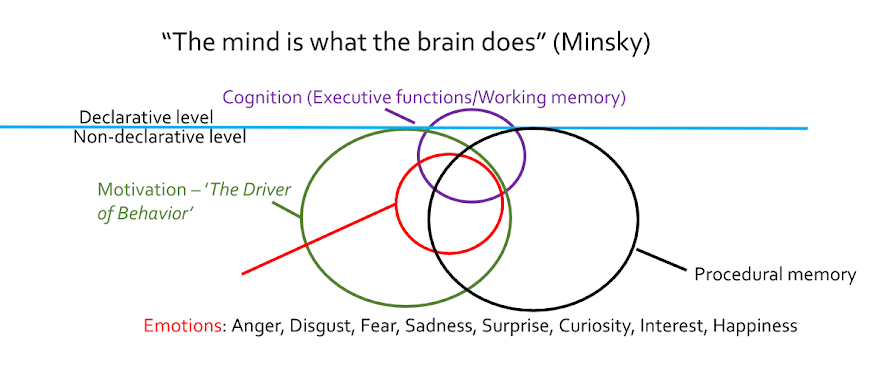The human mind has unique mental abilities. Why? Some 3.6 million years ago, our ancestors change their diet to include bone marrow which contains a number of important micronutrients, e.g. heme-iron, zinc, vitamin A, and some B vitamins, and docosahexaenoic fatty acids, to mention a few. 800 000 later, when the climate changed [again], from Pliocene to Pleistocene, meat was added to ‘the plate’. The consequence of this dietary change was an expansion of the brain, from 405 cc to today's 1300 cc, which opened the door for the ability to experience the future rationally by applying functions such as explorative and disjunctive reasoning as well as metacognitive sensitivity. This includes the ability to combine/blend non-related abstractions into new concepts, like the lion-man (40 000 years ago), the first bread (14400 years ago), beer (13000 years ago), Göpekli Tepe, agriculture, and religion (11 700 years ago). The Swedish Emanuel Swedenborg (1688-1772) suggested meat to be a sin, calling for an all plant-based Garden-of-Eden, or vegan, diet. The idea was picked up by the Seventh-Day Adventist Church. The 1950s saw the birth of the diet-heart hypothesis, connecting cardiovascular disease with the consumption of saturated fats, cholesterol, and red meat. Diet-heart hypothesis was never validated in experimental trials, but are still the ‘holy grail’ for some believers who continue to promote a Garden-of-Eden diet. The decision to abort animal-sourced food attracts some 1-2 % of a normal population and is explained by a combination of temperament: openness to change and neuroticism - worrying for the future. The consequence of a plant-based diet is lower self-esteem and psychological adjustment, less meaning in life and more negative moods and social experiences compared to people on an omnivore diet. In order to sustain mental health, it seems we need need to consume a plethora of micronutrients. Next time you go shopping for food, put the following on your shopping list: 13 vitamins (e.g. A, several B:s, C, some D, E, K2-Mk4 and Mk7), 15-16 minerals (Heme-Iron, Magnesium, Zinc and so forth). Choline, as well as Docosahexaenoic, Arachidonic fatty acids.
Link to source.
Period: 23 Jan 2020
Event title: Vik Food Science Seminars
Event type: Other
Sponsor: Department of Food and Environmental Sciences, University of Helsinki
Location: Helsinki, Finland.
Please support the blog via Swish (Sweden), MobilePay (Finland) or Wise.
Mer om min expertis:
Executive coaching for CEOs/managers and workshops to facilitate Organizational Performance, Learning, and Creativity for Problem Solving | Lectures: Nutrition for physical and mental health | Course/lecture: children's emotional and social adjustment and cognitive development | Language training - Swedish | Academy Competency | CV | Teaching skills and experience | Summary of research project | Instagram | Linkedin | YouTube-channel | TikTok | Twitter

No comments:
Post a Comment